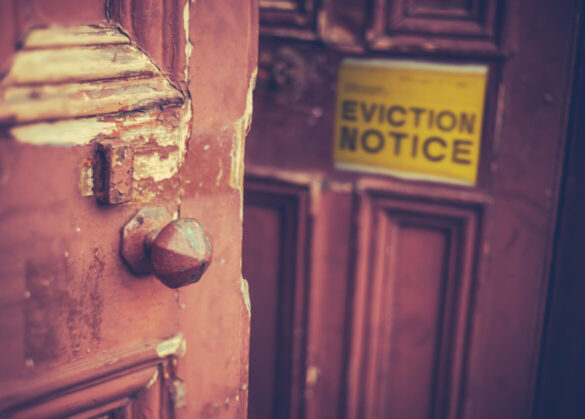Owning property in California comes with its fair share of challenges, and dealing with squatters is one of them. The state’s squatting laws can be confusing and frustrating for property owners, especially when unauthorized occupants use legal loopholes to remain on their land. Understanding whether squatting is illegal, how adverse possession claims work, and what steps you can take to regain control of your property is critical in protecting your rights.
At Ridley Defense, our mission is to provide exceptional legal representation, rooted in knowledge and a compassionate commitment to protecting our clients’ rights. Guided by our belief that every second chance is an opportunity for a better future, we strive to help property owners address squatting situations swiftly and effectively. Whether you’re facing squatters or need clarity on the laws, our experienced criminal defense attorneys are here to support you every step of the way.
Trespassing vs Squatting
Trespassing and squatting are often mistakenly used interchangeably, but they represent two distinct legal situations under California law. Trespassing occurs when someone enters or remains on a property without the owner's consent and without any intention of claiming residency or ownership. Squatting is a more complex issue, as it can transition from illegal occupancy to a potential legal claim under specific circumstances, making it primarily a civil matter in many cases. Understanding these distinctions is crucial for property owners, as the legal strategies for addressing trespassing and squatting differ significantly.
Trespassing
- Entry onto property without permission.
- Typically short-term or situational.
- Classified as a criminal offense (e.g., breaking into a building or ignoring a no-trespassing sign).
- Does not include efforts to claim residency or ownership.
Squatting
- Long-term or continuous occupation of a property without the owner’s consent.
- May involve attempts to establish residency or legal ownership under adverse possession laws.
- Often falls under civil law unless connected to criminal acts like vandalism or fraud.
- Requires formal eviction proceedings to remove unauthorized occupants.
For property owners, knowing the distinction helps ensure the appropriate legal steps are taken to protect their rights and regain control of their property.
Criminal Penalties for Unlawfully Occupying Property
Unlawfully occupying property in California can result in serious criminal penalties depending on the specific actions taken by the individual. While squatting itself often falls into civil law, related criminal acts can escalate a case from a civil dispute to a criminal offense. If an unauthorized occupant engages in fraudulent or destructive behavior, California law allows for criminal charges that may include fines, restitution, or even jail time. Squatting turns criminal in events of:
- Forging Lease Agreements: Creating or submitting fraudulent documents, such as fake rental agreements, is a felony offense under California Penal Code 115 and can lead to up to three years in prison.
- Breaking and Entering: Gaining unauthorized entry to a property by force, often to occupy it, can result in burglary charges under Penal Code 459, carrying up to six years in state prison.
- Vandalism: Damaging the property, including defacing walls or breaking fixtures, is a criminal offense under Penal Code 594. If damage exceeds $400, vandalism can be charged as a felony with penalties including fines and incarceration.
- Utility Theft: Reconnecting or illegally using water, gas, or electricity while occupying the property can result in misdemeanor or felony charges under Penal Code 498, depending on the extent of the theft.
Understanding these penalties is vital for property owners, as they offer a pathway to hold squatters accountable while seeking the support of law enforcement to resolve the situation.
Understanding California’s Adverse Possession Laws
California’s adverse possession laws are among the most intricate in the nation, allowing individuals to claim ownership of property if they meet specific requirements. An occupant must satisfy the following five key elements consistently over a continuous five-year period to make an adverse possession claim:
- Actual Possession: The individual must physically reside on the property and use it as an owner would.
- Open and Notorious Possession: Their occupation must be visible and obvious, so it’s clear to others, including the property owner, that the land is being used.
- Exclusive Possession: The squatter must have sole control of the property, without sharing it with others or the original owner.
- Hostile Possession: The occupation must occur without the property owner’s permission or consent.
- Payment of Property Taxes: The individual must pay all property taxes on the property during the entire five-year period.
How to Legally Evict a Squatter in California
For property owners dealing with squatters who do not meet the above strict criteria, the eviction process is essential. Legally evicting a squatter in California starts with serving a three-day written notice to vacate.
If the squatter does not leave, the next step is filing an unlawful detainer lawsuit to formally reclaim possession. This can be a tricky and time-sensitive process, and an experienced criminal defense attorney can be instrumental in guiding property owners through these legal challenges. The attorneys at Ridley Defense can help ensure compliance with California property laws, gather evidence, and represent owners in court to facilitate a smoother and swifter resolution.
How a Criminal Defense Attorney Can Help
Navigating squatter-related charges can feel challenging, but with the right legal team, defending your rights is entirely possible. Having experienced legal representation can make a significant difference, helping you understand your case, evaluate your options, and work toward the best possible outcome. Whether the case involves disputes over property rights or accusations like trespassing, a knowledgeable attorney can provide the guidance and defense you need.
At Ridley Defense, we are committed to advocating for individuals and protecting what matters most to them. Our team approaches every case with skill, care, and determination because we believe in fighting for your rights and opportunities. Contact Ridley Defense to take control of your case and reclaim your property.


